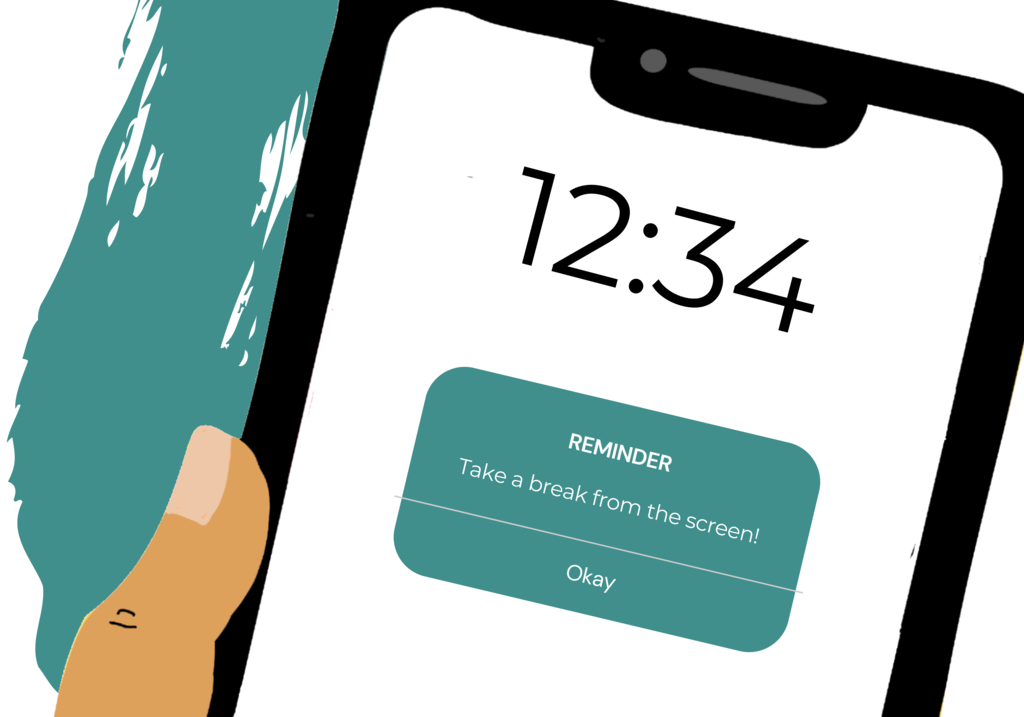While digital devices and screens have become a primary source of connection during the coronavirus pandemic, that reliance on technology can take a toll on mental health, specifically impacting those with irregular eating behaviors or eating disorders.
One of the major negative impacts of screen reliance includes “Zoom Dysmorphia,” according to Kristin Szostak, M.A., the site director of The Renfrew Center of Philadelphia-Center City, a treatment center for women and adolescent girls who have eating disorders. Zoom Dysmorphia is defined as feelings of self-consciousness and body dissatisfaction due to the increased time that a person is on a video call, Szostak said.
“In our everyday lives, we’re not constantly looking at our reflections,” Szostak said. “However, with Zoom and other telehealth and communication platforms, we are looking at ourselves all day. Those who may be suffering already from body image issues are particularly at risk of this increased self criticism, which may then lead to disordered eating, over exercising or a desire to seek out cosmetic procedures.”
It is estimated that on average people in the U.S. spend more than 13 hours per day looking at a digital screen since the coronavirus pandemic began, which is an increase from about 10 hours per day in 2019, according to a UnitedHealthcare survey.
“We’ve had a year that’s been rife with unforeseen challenges and our screens—whether it be a tablet, computer, phone—they’ve essentially served as our lifelines, but our lives have far more layers than just that one dimensional virtual self that’s reflected in the screen,” Szostak said.
Counseling and Psychological Services (CAPS) saw many students over the last year who reported stress directly related to COVID-19, according to Amanda Jones, Psy.D., staff psychologist at CAPS.
“While we don’t track concerns related to screen time, anecdotally, we are hearing that students feel impacted by how much time they are spending on their computers and devices,” Jones wrote in response to written questions from The Hawk. “We are seeing many students who, in our initial interview paperwork, report stress related to navigating COVID-19 and the impact it has had on their lives.”
The coronavirus pandemic has disproportionately impacted Black, Indigenous and people of color (BIPOC) communities, which has also brought more awareness to the disparities in healthcare treatment for these communities, especially when it comes to mental health concerns, according to Mental Health America.
According to the National Eating Disorder Association, people of color, specifically Black Americans, are less likely than white Americans to receive treatment for disordered eating concerns.
Jenna DiLossi, Psy.D., adjunct professor of psychology and co-founder of Center For Hope & Health, an eating disorder treatment center in Ardmore, said technology also makes social comparison accessible to people at all times.
“Social comparison is not a new phenomenon, but social media and the screen time enables us to just be doing it all day long,” DiLossi said. “Unfortunately, that is what young people are doing, scrolling through Instagram [and] TikTok, comparing [themselves] to people [and] taking advice from influencers who may or may not have a college degree.”
More time spent online scrolling through social media is associated with increased symptoms of depression, self-injurious behaviors and low self-esteem, according to recent research from Cyberpsychology, Behavior, and Social Networking, Jones said.
In order to limit the overall negative effects of digital screen time, students should make efforts to create physical and mental boundaries between class, social and wellness times, and consider how they’re engaging with social media, Jones advised.
“DMing your friends funny photos on Instagram or watching a show together on Teleparty may serve to strengthen friendships, whereas following content creators who make you feel inadequate in some way may foster more negative outcomes,” Jones said.
Szostak suggested replacing screen time with positive activities, whether it’s connecting with others or finding something new to try.
“Use that time to find opportunities to step away from your screen to engage in other hobbies or activities,” Szostak said. “Join groups or clubs online where you can connect with people that you may not encounter in a day-to-day in-person interaction, or look up recipes and meal ideas that you never really thought of trying before.”
If you or someone you know is struggling with an eating disorder, you can call the National Eating Disorders Association (NEDA) Helpline at 1-800-931-2237. To schedule an appointment with Counseling and Psychological Services (CAPS) at St. Joe’s, call 610-660-1090.










































